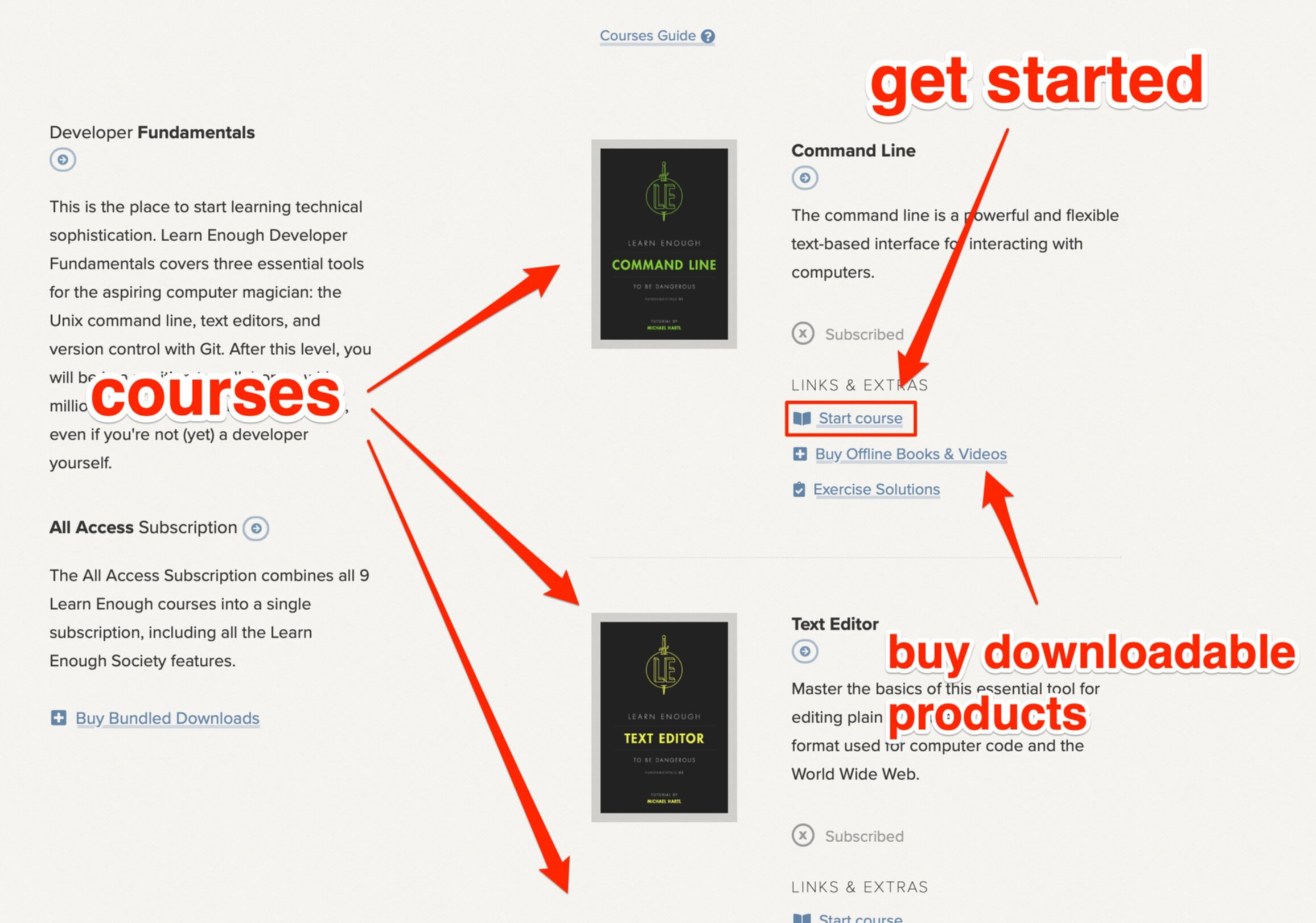
Companies Using Ruby on Rails in 2024 & Why It’s Their Go-To
Ruby on Rails is a popular framework for building web apps, and many businesses utilize Rails Ruby for a number of reasons.
What are Ruby on Rails' key features?
One of Ruby on Rails' key advantages is that it’s built for rapid development, allowing developers to swiftly create web apps with less code. Ruby on Rails is also highly scalable, meaning it can quickly handle an increasing user base and traffic.
Many international and local businesses adopt Ruby on Rails because of its thriving community of developers. The community consistently contributes to the framework, creating open-source libraries of RoR gems, resources, and tools.
Besides its flexible, fast development features and unlimited integration potential, its thriving dev community makes it easy for in-house RoR devs to quickly find solutions to problems, as well as purpose-built tools with which to innovate and create.
Why is Ruby on Rails so popular?
So, is Ruby on Rails still relevant?
While its popularity may have waned slightly since its heyday about 10 years ago (it's 20 years old now), it still boasts highly attractive use cases for devs in the object-oriented programming and Agile development spaces.
For these reasons alone, the Ruby on Rails framework is still heavily utilized in 2024, particularly for online and mobile app creation.
For a quick blast of insight, watch the following presentation from Bo Tree Technologies.
With its front-end and back-end web development capabilities, innovative big tech companies across a number of industries continue to use Ruby programming language in 2024—and they use it for just about anything.
From creating social media platforms and customer relationship management interfaces to the backend development of payment systems and high-performing web applications, successful Rails companies have found more uses for the framework than we have space to write about.
The following is a compilation of 10 companies of all sizes that are using Ruby on Rails in 2024. These include everything from basic Ruby on Rails website examples to sprawling, complex Rails-based apps and platforms.
1. AirBnB

Global travel accommodation giant, AirBnB, has used Ruby on Rails since its inception in 2008.
A digital services fixture in 191+ countries, AirBnB is a continuously growing company that has benefited greatly from the scalability, flexibility, and integration power of the Rails framework.
AirBnB's model is based on an ever-growing user base of travelers and hosts, so flexibility and scalability have always been the lifeblood of this historic Rails website.
RoR was originally used across the board but is now used primarily for API integration, where it effectively ties their expansive back and frontend operations together.
2. GitHub
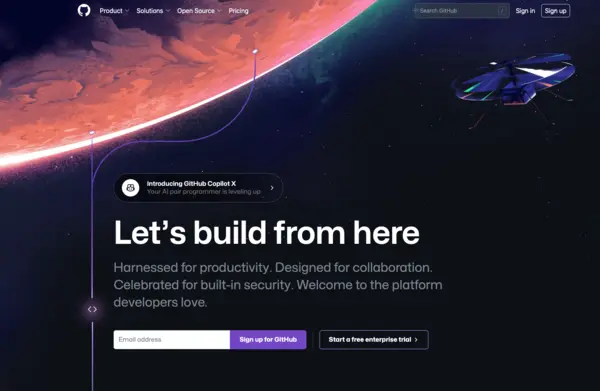
Needing no introduction for developers, GitHub is a web hosting platform that's home to a vast open-source library that is used to modify and manage hundreds of millions of projects across all corners of the tech industry.
Ruby on Rails has played a major part in GitHub's evolution over the years and the framework has proved itself well-equipped with all the tools needed to manage the large number of project management requests they get on a daily basis.
Two other ways GitHub utilizes Ruby on Rails include:
2.1 Testing
Ruby on Rails includes a robust testing mechanism. This framework is used by GitHub to create automated tests for its application, guaranteeing that modifications to the codebase do not cause problems or regressions.
2.2 REST APIs
GitHub makes APIs available to developers, allowing them to access and change data on the platform. These APIs are created with Ruby on Rails and adhere to REST design principles.
3. Netflix

While Netflix makes use of a fairly large tech stack, Ruby on Rails plays an instrumental role in their microservices, as well as in the hefty internal security of this world-famous video streaming platform.
3.1 Monitoring
Ruby on Rails is also used for their monitoring and analytics. Netflix employs RoR-based technologies to monitor the platform's performance and stability, as well as to collect and analyze user data.
3.2 Analytics
A wildly successful subscription model streaming service, Netflix uses RoR to identify areas for development and make data-driven decisions to enhance the user experience—an essential in this highly competitive online space.
4. Zendesk
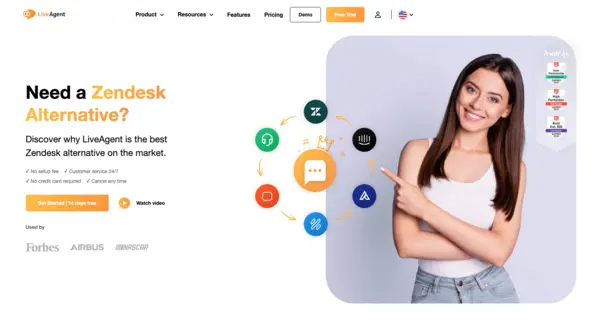
Zendesk is a cloud-based customer support software startup that helps businesses manage and improve customer acquisition, customer interactions and overall customer relationships.
The company provides a variety of services and web app and widget solutions to assist businesses of all kinds in improving their customer support and engagement, such as ticketing systems and self-service choices.
Some of Zendesk's high-profile customers include Airbnb and Shopify (both of which also utilize Ruby on Rails) and via its versatile APIs, Rails powers the backend of these services and makes it simple to combine them with client apps.
5. Couchsurfing
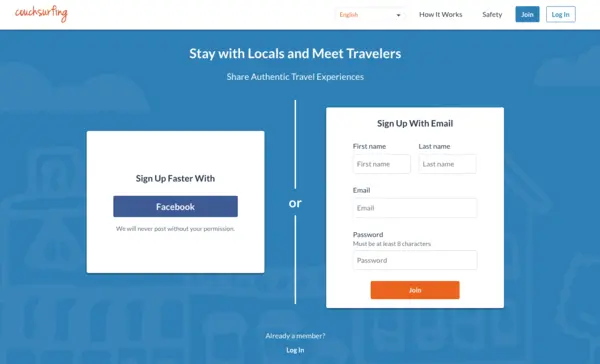
This company may be less of a household name, however, they count as a prime example that it's not just large tech companies that can benefit from Ruby on Rails.
A unique alternative to Airbnb that doubles as a traveler-host social media platform, this startup company has actually been around since 2003 but caters to a smaller market size.
That's because this streamlined, simple platform connects budget travelers with generous hosts who'll allow them to stay on a couch or in a separate room for free—without the mod cons and flourishes of AirBnB, of course.
Utilizing Rails language and framework in their development process, Couchsurfing has created a thriving online community and interaction platform powered by knowledgeable Rails devs that maintain high-quality code.
6. Dribble
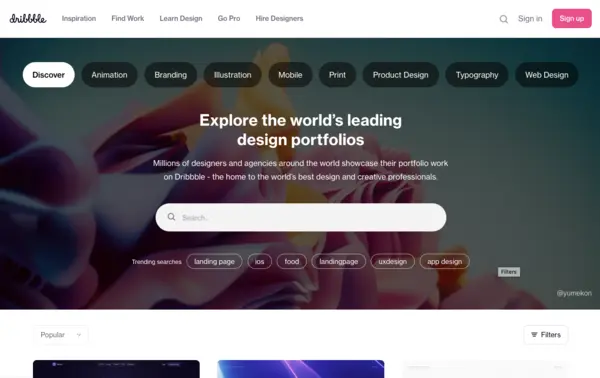
Graphic design is an ever-growing industry, with more and more companies hiring in-house and freelance graphic designers to beautify their evolving web profiles, site and platform interfaces, and marketing campaigns.
Dribble provides an online platform for graphic designers to post their projects and improve their skills by interacting with over 500,000 other designers. This topical social network also opens doors to new career opportunities and potential clients for designers, through GD-focused networking.
Dribble was developed in 2009 using Ruby on Rails and, as a testament to its success, the internet is awash with unique tutorials on how to build a Dribble clone using Ruby on Rails.
In 2024, Dribble has evolved to be more than just a Rails app, using several other frameworks as well, including HTML5 and jQuery. However, RoR has been and continues to be instrumental in the platform's flexibility, scalability and success as a media-sharing Mecca.
7. Shopify

If you've ever shopped via an online marketplace, chances are you've interacted with a Shopify-powered online store.
Famed for their expansive digital marketing and sales solutions, Nearly 4 million websites are using the ecommerce platform in 2024—and Ruby on Rails has played an extensive part in its speedy development and robust backend support solutions.
Some specific ways Shopify uses Ruby on Rails include:
7.1 Web development
The sprawling Shopify platform was mostly developed using the Ruby on Rails framework.
The framework offers a quick and effective approach to designing web applications and, because of its modular architecture, programmers can add their own modules and plugins to increase the platform's capability. For businesses looking to enhance their online presence, consider consulting web design experts to leverage the full potential of Ruby on Rails.
7.2 Admin interface
Ruby on Rails is also used in the development of Shopify's admin interface.
Merchants can manage their storefronts, goods, and orders using this interface. A flexible and user-friendly foundation for creating intricate user interfaces is offered by RoR.
8. Kickstarter
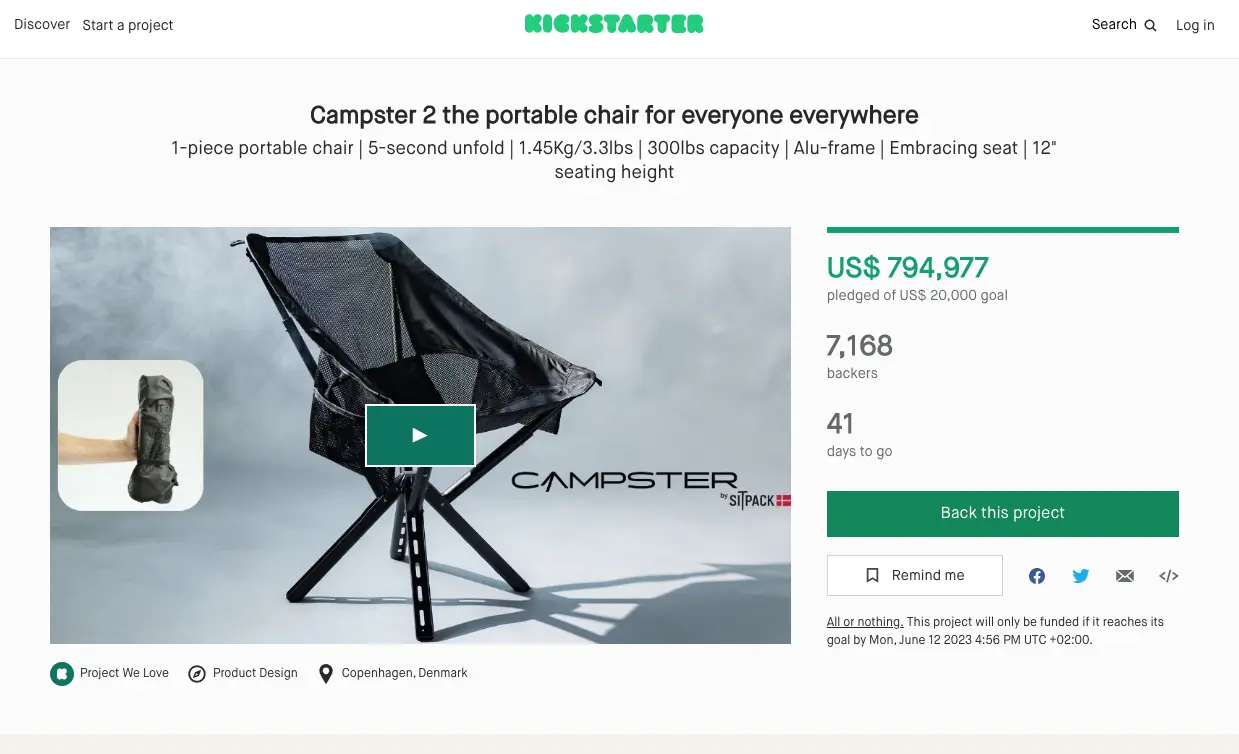
Kickstarter is an online crowdfunding platform that enables people and groups to raise money for all kinds of personal artistic, creative and design endeavors, like movies, music albums, art installations, book publishing, dance shows—you name it.
Headquartered in Brooklyn, New York, the platform was created in 2009 using Ruby on Rails. Some consider Kickstarter to be one of Ruby on Rails' most successful web development projects.
The framework's massive community and vast gem libraries helped the company to make the most of RoR's awesome capabilities and features.
Used in conjunction with the Perl language, RoR developers were able to provide backend and frontend development while also offering a scalable framework for their ever-increasing user interactions.
9. Soundcloud
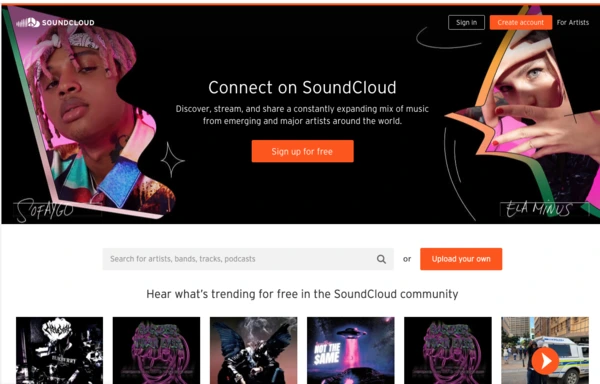
Thanks to the framework's versatility, Ruby on Rails devs are employable across a range of different industries, one of which is the music streaming space.
Soundcloud has over 250 million registered users, a huge community that warrants a technology stack built on programming languages like RoR's Ruby, that can handle the weighty tasks required to post and share music.
9.1 Frontend development
The Soundcloud platform employs Ruby on Rails for frontend development, even though it's mostly a backend framework. The framework's view helpers make it simple to build HTML, and the platform uses the Rails asset pipeline to handle its JavaScript and CSS files.
9.2 Testing
To maintain the integrity and dependability of its platform, Soundcloud keeps a sizable codebase, and relies extensively on automated testing. RSpec and Capybara, two built-in testing tools in Ruby on Rails, make it simple to create and execute tests.
10. Helpling
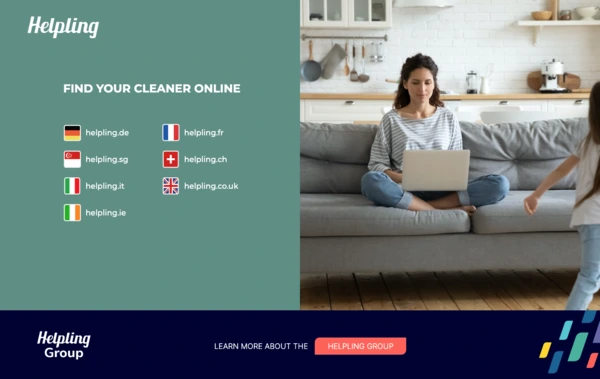
One of the smaller and lesser-known companies using Ruby on Rails applications on this list, Helpling is a leading Ruby web application that connects out-of-work house cleaners with homeowners who need help.
Helpling uses trusted Ruby developers to help implement secure payments, efficient searches, and top-tier account management.
More specifically, Helpling employs an Agile software development technique with RoR, which incorporates short development cycles and quick iterations. This method enables Helpling to respond swiftly to customer requests and market changes.
Final thoughts: web development made easy
Based on one of the world's most popular programming languages, Ruby on Rails is a popular and efficient web development framework that provides various advantages to businesses of all kinds.
Its straightforward layout, convention over configuration approach, and rich set of built-in tools and frameworks enable developers to create websites, web apps, and online platforms fast and efficiently.

Additionally, the enormous and friendly developer community that surrounds Ruby on Rails offers plenty of tools for learning, debugging, solving all kinds of user requests, and exchanging best practices.
Businesses can profit from this community by tapping into the large pool of available resources, knowledge, and skills, as well as exploiting the framework's wealth of third-party plugins and extensions.
In closing
As an aspiring Ruby dev, it can be hard to know where to start. We highly recommend the “Learn Enough Ruby To Be Dangerous” tutorial. This comprehensive Ruby guide equips you with the nuts-and-bolts dev grit you need to dive into the more lucrative aspects of RoR app development.
Once you’ve built up those Ruby skills, our “Ruby On Rails Tutorial” is your logical next step—a leap, to be more exact. This insanely comprehensive intro to RoR will arm you with the confidence and skills required to enter the wider world of professional Rails developers.
Soon, you'll be counting yourself among the Ruby on Rails experts!
About Learn Enough
At Learn Enough, we provide carefully designed courses to take you from a beginner to a professional-grade developer.
Every Learn Enough All Access subscription includes the acclaimed Ruby on Rails Tutorial, our leading introduction to full-stack RoR development.
If you manage a team of developers, Learn Enough for Teams boosts the skills of your junior devs and gets your senior devs quickly up to speed with the latest versions of Ruby on Rails, and more.
Start your all-access 7-day free trial today!
All Access Subscription
Get free access to all 10 Learn Enough courses (including the Ruby on Rails Tutorial) for 7 days!
Free 7 Day trial details
We require a credit card for security purposes, but it will not be charged during the trial period. After 7 days, you will be enrolled automatically in the monthly All Access subscription.
BUT you can cancel any time and still get the rest of the 7 days for free!
All Learn Enough tutorials come with a 60-day 100% money-back guarantee.











